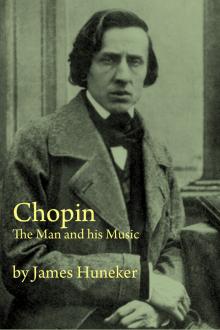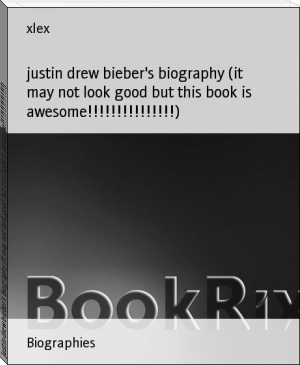Haydn, J. Cuthbert Hadden [books for new readers .TXT] 📗

- Author: J. Cuthbert Hadden
Book online «Haydn, J. Cuthbert Hadden [books for new readers .TXT] 📗». Author J. Cuthbert Hadden
Yours, etc.
HAYDN.
To Frau v. Genzinger.
LONDON, Oct. 13, 1791.
I take the liberty of earnestly entreating you to advance 150 florins for a short time to my wife, provided you do not imagine that since my journey I have become a bad manager. No, my kind, good friend, God blesses my efforts. Three circumstances are alone to blame. In the first place, since I have been here, I have repaid my Prince the 450 florins he advanced for my journey; secondly, I can demand no interest from my bank obligations, having placed them under your care, and not being able to remember either the names or the numbers, so I cannot write a receipt; thirdly, I cannot yet apply for the 5883 florins (1000 of which I recently placed in my Prince's hands, and the rest with the Count v. Fries), especially because it is English money. You will, therefore, see that I am no spendthrift. This leads me to hope that you will not refuse my present request, to lend my wife 150 florins. This letter must be your security, and would be valid in any court. I will repay the interest of the money with a thousand thanks on my return.
I am, etc.,
HAYDN.
...I believe you received my letter the very same day that I was reading your cruel reproach that Haydn was capable of forgetting his friend and benefactress. Oh! how often do I long to be beside you at the piano, even for a quarter of an hour, and then to have some good German soup. But we cannot have everything in this world. May God only vouchsafe to grant me the health that I have hitherto enjoyed, and may I preserve it by good conduct and out of gratitude to the Almighty! That you are well is to me the most delightful of all news. May Providence long watch over you! I hope to see you in the course of six months, when I shall, indeed, have much to tell you. Good-night! it is time to go to bed; it is half-past eleven o'clock. One thing more. To insure the safety of the money, Herr Hamberger, a good friend of mine, a man of tall stature, our landlord, will bring you this letter himself, and you can with impunity entrust him with the money; but I beg you will take a receipt both from him and from my wife.
Among other things, Herr v. Kees writes to me that he should like to know my position in London, as there are so many different reports about me in Vienna. From my youth upwards I have been exposed to envy, so it does not surprise me when any attempt is made wholly to crush my poor talents; but the Almighty above is my support. My wife wrote to me that Mozart depreciates me very much, but this I will never believe. If true, I forgive him. There is no doubt that I find many who are envious of me in London also, and I know them almost all. Most of them are Italians. But they can do me no harm, for my credit with this nation has been firmly established far too many years. Rest assured that, if I had not met with a kind reception, I would long since have gone back to Vienna. I am beloved and esteemed by everyone, except, indeed, professors [of music]. As for my remuneration, Mozart can apply to Count Fries for information, in whose hands I placed 500 pounds, and 1000 guilders in those of my Prince, making together nearly 6000 florins. I daily thank my Creator for this boon, and I have good hope that I may bring home a couple of thousands besides, notwithstanding, my great outlay and the cost of the journey. I will now no longer intrude on your time. How badly this is written! What is Pater --- doing? My compliments to him.
Yours, etc.
HAYDN.
To Frau v. Genzinger.
LONDON, Nov. 17, 1791.
I write in the greatest haste, to request that you will send the accompanying packet, addressed to you, to Herr v. Kees, as it contains the two new symphonies I promised. I waited for a good opportunity, but could hear of none; I have therefore been obliged to send them after all by post. I beg you will ask Herr v. Kees to have a rehearsal of both these symphonies, as they are very delicate, particularly the last movement in D, which I recommend to be given as pianissimo as possible, and the tempo very quick. I will write to you again in a few days. Nota bene, I was obliged to enclose both the symphonies to you, not knowing the address of Herr v. Kees.
I am, etc.
HAYDN.
P.S.--I only returned here to-day from the country. I have been staying with a mylord for the last fortnight, a hundred miles from London.
To Frau v. Genzinger.
LONDON, Dec. 20, 1791.
I am much surprised that you did not get my letter at the same time as the two symphonies, having put them myself into the post here, and given every direction about them. My mistake was not having enclosed the letter in the packet. This is what often happens, dear lady, with those who have too much head work. I trust, however, that the letter reached you soon afterwards, but in case it did not, I must here explain that both symphonies were intended for Herr v. Kees, but with the stipulation that, after being copied by his order, the scores were to be given up to you, so that you may prepare a pianoforte arrangement of them, if you are so disposed. The particular symphony intended for you will be finished by the end of February at latest. I regret much having been obliged to forward the heavy packet to you, from not knowing Herr v. Kees's address; but he will, of course, repay you the cost of postage, and also, I hope, hand you over seven ducats. May I, therefore, ask you to employ a portion of that sum in copying on small paper my often-applied-for symphony in E minor, and forward it to me by post as soon as possible, for it may perhaps be six months before a courier is despatched from Vienna, and I am in urgent need of the symphony. Further, I must plague you once more by asking you to buy at Artaria's my last pianoforte sonata in A flat, that is, with 4 B flat minor, with violin and violoncello, and also another piece, the fantasia in C, without accompaniment, for these pieces are not yet published in London; but be so good as not to mention this to Herr Artaria, or he might anticipate the sale in England. I beg you will deduct the price from the seven ducats. To return to the aforesaid symphonies, I must tell you that I sent you a pianoforte arrangement of the andante in C minor by Herr Diettenhofer. It is reported here, however, that he either died on the journey, or met with some serious accident. You had better look over both pieces at your leisure. The principal part of the letter I entrusted to Herr Diettenhofer was the description of a Doctor's degree being conferred on me at Oxford, and all the honours I then received. I must take this opportunity of mentioning that three weeks ago the Prince of Wales invited me to his brother's country seat. The Prince presented me to the Duchess (a daughter of the King of Prussia), who received me very graciously, and said many flattering things. She is the most charming lady in the world, possesses much intelligence, plays the piano, and sings very pleasingly. I stayed two days there, because on the first day a slight indisposition prevented her having any music; on the second day, however, she remained beside me from ten o'clock at night, when the music began, till two hours after midnight. No compositions played but Haydn's. I directed the symphonies at the piano. The sweet little lady sat close beside me at my left hand, and hummed all the pieces from memory, having heard them so repeatedly in Berlin. The Prince of Wales sat on my right hand, and accompanied me very tolerably on the violoncello. They made me sing too. The Prince of Wales is having me painted just now, and the portrait is to be hung up in his private sitting-room. The Prince of Wales is the handsomest man on God's earth; he has an extraordinary love of music, and a great deal of feeling, but very little money. Nota bene, this is entre nous. His kindness gratifies me far more than any self-interest; on the third day, as I could not get any post-horses, the Duke of York sent me two stages with his own.
Now, dear lady, I should like to reproach you a little for believing that I prefer London to Vienna, and find my residence here more agreeable than in my fatherland. I am far from hating London, but I could not reconcile myself to spend my life there; no, not even to amass millions; my reasons I will tell you when we meet. I think of my home, and embracing once more all my old friends, with the delight of a child; only I deeply lament that the great Mozart will not be of the number, if it be true, which I trust it is not, that he is dead. Posterity will not see such talent as his for the next hundred years! I am happy to hear that you and yours are all so well. I, too, have hitherto been in excellent health, till eight days since, when I was attacked by English rheumatism, and so severely that sometimes I could not help crying out aloud; but I hope soon to get quit of it, as I have adopted the usual custom here, and have wrapped myself up from head to foot in flannel. Pray excuse my bad writing. In the hope of soon being gratified by a letter, and with all esteem for yourself, and best regards to your husband, my dear Fraulein Pepi, and the others.
I am, etc.,
HAYDN.
P.S.--Pray give my respects to Herr v. Kreybich [chamber music director to Joseph II].
To Frau v. Genzinger.
LONDON, Jan. 17, 1792.
DEAREST AND KINDEST LADY,
I must ask your forgiveness a thousand times; and I own and bemoan that I have been too dilatory in the performance of my promise, but if you could only see how I am importuned to attend private concerts, causing me great loss of time, and the mass of work with which I am burdened, you would indeed, dear lady, feel the utmost compassion for me. Never in my life did I write so much in one year as during the last, which has indeed utterly exhausted me, and it will do me good to be able to take a little rest when I return home. At present I am working





Comments (0)